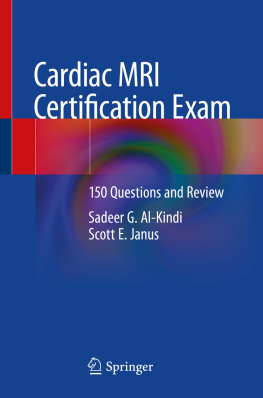Editors
Rajesh Tampi
Department of Medicine, Cleveland Clinic Lerner College of Medicine of Case Western Reserve University, Cleveland, OH, USA
Deena Tampi
Behavioral Health Advisory Group, Princeton, NJ, USA
Juan Young
Department of Psychiatry, Yale School of Medicine, New Haven, CT, USA
Rakin Hoq
Child and Adolescent Psychiatry, NYU Grossman School of Medicine, New York, NY, USA
Kyle Resnick
Department of Psychiatry & Behavioral Sciences, Cleveland Clinic Akron General, Akron, OH, USA
ISBN 978-3-030-58662-1 e-ISBN 978-3-030-58663-8
https://doi.org/10.1007/978-3-030-58663-8
Springer Nature Switzerland AG 2021
This work is subject to copyright. All rights are reserved by the Publisher, whether the whole or part of the material is concerned, specifically the rights of translation, reprinting, reuse of illustrations, recitation, broadcasting, reproduction on microfilms or in any other physical way, and transmission or information storage and retrieval, electronic adaptation, computer software, or by similar or dissimilar methodology now known or hereafter developed.
The use of general descriptive names, registered names, trademarks, service marks, etc. in this publication does not imply, even in the absence of a specific statement, that such names are exempt from the relevant protective laws and regulations and therefore free for general use.
The publisher, the authors and the editors are safe to assume that the advice and information in this book are believed to be true and accurate at the date of publication. Neither the publisher nor the authors or the editors give a warranty, expressed or implied, with respect to the material contained herein or for any errors or omissions that may have been made. The publisher remains neutral with regard to jurisdictional claims in published maps and institutional affiliations.
This Springer imprint is published by the registered company Springer Nature Switzerland AG
The registered company address is: Gewerbestrasse 11, 6330 Cham, Switzerland
Preface
We are living in an aging world. For the first time in human history, there are more people living who are above the age of 65 years when compared to children under the age of 5 years. It is expected that the number of older adults in the world will double over the next three decades to over 2.1 billon individuals. This statistic also holds true for the United States where currently 15% of the population is over 65 years. By 2060, the population of older adults in the United States is expected to reach 95 million or a quarter of its population. Psychiatric disorders are not uncommon among older adults. It is estimated that between 15% and 20% of the older adults have a diagnosable psychiatric disorder. The common psychiatric disorders seen among the older adults include anxiety disorders, depressive disorders, bipolar disorders, psychotic disorders, neurocognitive disorders, personality disorders, and substance use disorders. Evidence indicates that the presence of psychiatric disorders among older adults increases their morbidity and risk for mortality. Although the population of older adults with psychiatric disorders is increasing, the total number of trained geriatric mental health professionals has not kept pace with the needs of the aging population. Despite a significant growth in the knowledge and research data regarding common psychiatric disorders among older adults over the last two decades, this crucial information has not been disseminated adequately to clinicians who care for these older adults.
In an effort to improve knowledge sharing with fellow professionals who care for older adults with psychiatric disorders, we decided to write a concise question and answer book that covers various important topics in geriatric psychiatry. This book contains the latest information on psychiatric disorders among older adults. It is written by experienced and award-winning professionals who specialize in the care of older adults with psychiatric disorders. This new book can be used by anyone who wants to learn about psychiatric disorders among older adults. Additionally, this book serves as an excellent resource for any individual who intends to attain professional certificates in order to treat older adults with psychiatric disorders. This book has been written with the full awareness that the field of geriatric psychiatry is growing rapidly. We intend to update the information in this book with the latest scientific data every few years. It is our sincere hope that the readers of this book will find the information in this book helpful in improving their knowledge about psychiatric disorders among older adults. Last but not least, we would like to acknowledge our respective families, colleagues, trainees, and staff for their support and thank all the contributors for their efforts in creating this book.
Rajesh Tampi
Deena Tampi
Juan Young
Rakin Hoq
Kyle Resnick
Cleveland, OH, USA Princeton, NJ, USA New Haven, CT, USA New York, NY, USA Akron, OH, USA














